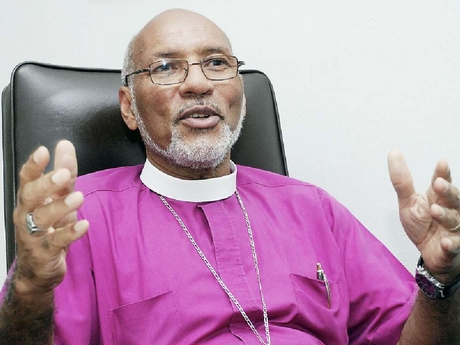
In the wake of the settlement of the issue regarding the appointment of the Head Girl at St. Hilda’s Diocesan High School, the Diocese of Jamaica & The Cayman Islands has expressed concern about the extensive public discourse generated by the issue through the mass media.
In a Statement published in the print media, the Rt. Rev. Howard Gregory, Bishop of Jamaica and the Cayman Islands noted that while the discourse reflected the freedom of expression and healthy democracy which citizens enjoyed, this was an undesirable means to resolve such issues.
“The Diocese of Jamaica and the Cayman Islands takes the position that the appropriate channel for dealing with such disputes – whether in this or other cases – must be engaged, as prescribed, so that matters can be resolved without recrimination, victimization and unwarranted smearing of the character of individuals and institutions involved,” Bishop Gregory asserted.
He noted that contrary to the provisions of the Education Regulations, the dispute was not reported to the School’s Board of Management as a first step, but was taken to the media as the preferred option by a party other than the aggrieved parent and child.
Bishop Gregory said the Anglican Church was also concerned about the way in which the identity of the minor involved was publicized through the media. While acknowledging that there was provision for the Office of the Public Defender to intervene in such matters, he suggested that this issue more appropriately fell under the purview of the Office of the Children’s Advocate which is mandated to promote the best interests of children and “to protect and enforce their rights.”
He further argued that the release of the Public Defender’s Report was premature, as the recommendation for re-instatement of the Head Girl was made public without allowing the School’s Board of Management the opportunity to deliberate on the matter; and before due process was exhausted.
The Statement also stoutly defended the faith principles upheld by St. Hilda’s. Bishop Gregory asserted that like other institutions founded by religious communities, the School has a right “to maintain an ethos and tradition consistent with its faith principles. Our partnership with Government, which began with grant-aided status, has never meant the abnegation of this principle,” he said.
(Please click here for the full text of the Statement)

